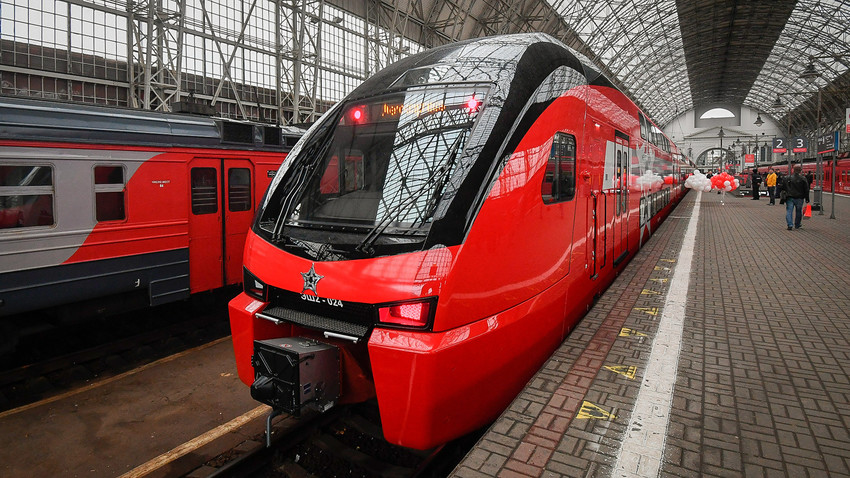
With the development of blockchain, more state-owned companies around the globe want to implement this emerging technology, attracted by transparency and the decentralized nature of blockchain, Russian Railways (RZD), for example, is working on a new pilot project with Bitfury, an infrastructure provider for Bitcoin mining.
“Our project is related to the repair and replacement of wagon wheel pairs,” said Dmitry Ufaev, CEO of Bitfury Russia. “This solution consists of a service that monitors the life cycle of carriages, and a marketplace for purchasing and exchanging parts.”
Safety for passengers
Other parts of the project include vital elements in the rail system, such as nodes, which are devices used to prevent the fouling of a rail track by the movement of trains.
The existing railways has several significant drawbacks, said Ufaev. Currently, the main method of wheel identification is hot stamping, but some wheels are duplicated. Also, communication between different railway operators is a challenge.
Thanks to the new project, duplicate rail nodes and parts without history of origin or incorrect data can be tracked by a smart contract, a computer protocol that verifies and enforces agreements.
The new solution will improve safety for passengers. “The introduction of blockchain technology will help us eliminate counterfeit parts; while RZD will be able to reduce the repair time and related costs,” said Ufaev.
The solution for Russian Railways rests on Exonum, an open-source framework for creating private blockchain applications. In comparison to the public blockchain that has no access restrictions, a private blockchain is a closed network. According to Ufaev, Bitfury is hoping to fully integrate the solution on railways by the end of 2018.
Blockchain can decrease travel time
RZD has been talking about blockchain for a while, and a few months ago Evgeny Charkin, the company’s CIO, said cryptocurrencies could be accepted as payment for train tickets. “It will be possible as soon as the appropriate legislation is adopted,” Charkin said.
In 2017, RZD launched the blockchain-based digital trading platform, Freight Transport, which allows a person to place an order for the shipment of goods. The company reported that within the nine months since its launch more than 5,000 cargo shipments have been successfully completed. The platform uses Emercoin blockchain.
Vitaliy Tsigulev, COO of the blockchain incubator, Waves Lab, believes that the use of blockchain technology might lead to lower prices for passengers, and “might reduce logistics costs.”
Together with artificial intelligence (AI), which can process a huge array of information and make train schedules, blockchain can also decrease travel time, Tsigulev added.
“The technology can also prove very useful in electronic document management: it allows to quickly execute transactions and track the entire process for the delivery of goods. And, of course, blockchain has great prospects in data storage.”
Russian Railways is a monopoly in the country: in the first half of 2018 its passenger flow exceeded 547 million people. “Usually, state corporations are cautious about new technologies, and this is why it's so interesting to observe RZD, which is taking the first steps towards digital transformation,” Tsigulev said.
If using any of Russia Beyond's content, partly or in full, always provide an active hyperlink to the original material.
Subscribe
to our newsletter!
Get the week's best stories straight to your inbox